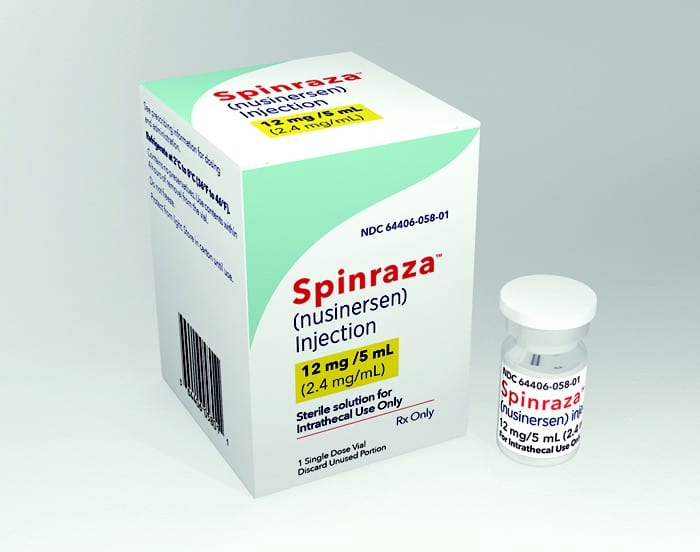
Biogen has announced it will test its spinal muscular atrophy drug Spinraza in patients who still have unmet clinical needs after treatment with Novartis’ gene therapy Zolgensma.
The planned RESPOND trial comes in response to a long-term study of Zolgensma (onasemnogene abeparvovec) which found that four out of ten patients have been subsequently treated with Spinraza (nusinersen), despite Novartis’ gene therapy supposedly being a ‘one-shot’ curative treatment.
The trial will evaluate the efficacy and safety of Spinraza in this patient setting by assessing changes in motor function measures as well as additional clinical outcomes, including swallowing and caregiver burden.
The primary RESPOND study group aims to include 40 infants aged nine months or younger at the time of their first Spinraza dose, who have two copies of the SMN2 gene and who have already received Zolgensma at six months old or younger.
A second study group will include 20 children and will generate data in patients in a broader age range – up to three years old at the time of their first Spinraza dose.
“As clinicians, we continue to pursue improved outcomes for infants and children with SMA, and the need for additional benefit in some patients treated with gene therapy has been observed. There is compelling clinical rationale for the potential for additional efficacy with Spinraza in these patients,” said Crystal Proud, a member of the RESPOND study steering committee.
“We expect that the RESPOND study will generate valuable data to help inform future treatment decisions for our youngest SMA patients,” she added.
Biogen plans to submit the study protocol to regulatory authorities over the coming months, and will enrol the first eligible patients into the study in the first quarter of 2021.
Novartis’ gene therapy was approved to treat SMA in patients aged two and younger by the FDA in May 2019, with a price-tag of $2.1m per patient – making it the first US drug to cost over one million dollars. Spinraza was launched in December 2016, with a list price of $750,000 for the initial year and $375,000 per year thereafter.
Both companies are facing upcoming competition from Roche’s rival drug risdiplam, which has scored an FDA priority review in SMA. Positive phase 3 data demonstrated that risdiplam can improve motor function in patients aged two to 25 with SMA type 2 or type 3. Roche is also currently investigating risdiplam in an additional clinical trial in infants with SMA type 1.




